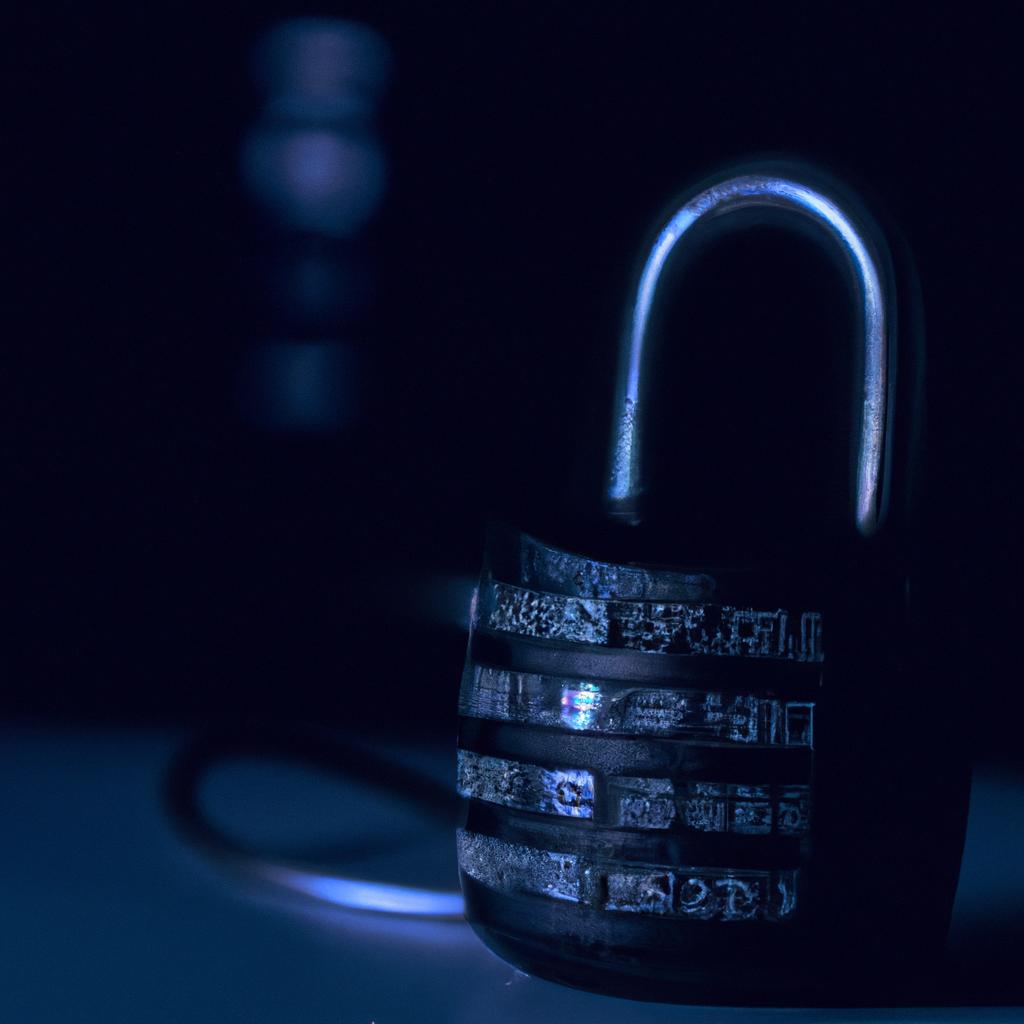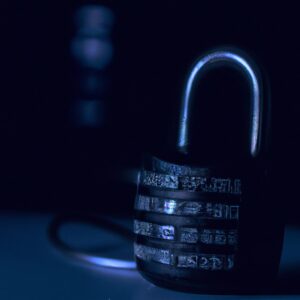Introduction: Why Staying Safe Online is So Important
With the increasing presence of technology in our daily lives, it is important to be aware of the importance of staying safe online. With the internet becoming increasingly integrated into our lives, it is even more crucial to take precautionary steps to ensure your safety and security. Not taking proper precautions can leave you vulnerable to physical and financial harm, identity theft and malicious software.
In order to make sure that you are able to enjoy the internet safely, this guide will provide best practices when it comes to internet security. By following the steps outlined in this guide, you’ll be able to protect yourself from potential threats and make sure that you can stay safe online.
What is Internet Security?
Internet security is the process of protecting your online identities, data, and devices from being accessed or harmed by malicious actors. It can involve a range of techniques, such as encrypting data, using strong passwords, monitoring for suspicious activity, and avoiding unsafe networks.
There are a variety of approaches you can take to keep yourself safe when using the internet, including:
- Using secure passwords that are complex and unique.
- Updating software and deleting files on a regular basis.
- Being aware of phishing attacks and other online frauds.
- Checking sites for HTTPS encryption before entering personal data.
- Avoiding public Wi-Fi networks and only connecting to trusted networks.
- Setting up two-factor authentication where possible.
Protecting Your Computer
Using antivirus, firewalls, and malware protection software is an important way to protect your computer from malicious online activity. Antivirus software helps to prevent viruses, worms, and other malicious software programs from entering and compromising your device. Firewall protection is a layer of security designed to detect and prevent unauthorized access to your system. Malware protection helps to protect against malicious attacks such as pop-ups, ransomware, and data theft.
Device encryption is another layer of security you can implement to protect against computer theft or attack. Encryption scrambles the data on your device so that it is unreadable unless a correct code (or encryption key) is used to decrypt it.
Taking these measures will help to ensure that your computer is safe and secure from potential threats.
Password Protection
Having a strong and secure password for your online accounts and devices is one of the most important steps you can take to ensure your online safety. It’s essential that you choose passwords that are difficult for hackers to guess, and that you never share such passwords with anyone else.
Creating a strong password can be a challenge, but there are a few key elements that you should keep in mind when doing so:
- Make sure your password is at least eight characters long, with a combination of upper- and lower-case letters, numbers, and special characters.
- Choose a password that you can remember easily, but is hard to guess.
- Create passwords that are unique for each account or device.
- Avoid using personal information as part of your passwords, such as your name, address, phone number, etc.
It’s also important to change your passwords regularly and to use two-factor authentication when available.
Strategies to Stay Safe on Social Media
Social media is a fun way to stay connected with friends, family and share your life with others. However, it is important to keep your personal information safe when using social media platforms. Here are some strategies to help make sure you stay secure.
- Check your privacy settings regularly – Make sure your settings allow you to limit the visibility of your posts to only those people you want to see them.
- Be cautious when sharing personal information – Remember, even if your audience is limited, your personal information can still be shared without your consent.
- Don’t click on any suspicious links – It’s important to remember that fraudsters can use social media to spread malicious links that can lead to malware or breach your personal data.
- Keep your accounts secure – Make sure to use a strong password and two-factorauthentication for your account.
By following these strategies, you can make sure that your personal information is safe while using social media.
Appropriate Online Behavior
When using the internet, it is important to maintain appropriate online behavior to stay safe and secure. You should only provide your personal information to reputable websites, use secure payment systems such as PayPal and never forget to follow the terms of service for all online services.
When it comes to providing personal information, always read the privacy policy of a website before providing any information. Make sure you are comfortable with how they use your data before signing up or making purchases.
Payment systems such as PayPal are the safest way to pay for goods and services online. They provide added security measures to protect your data, and it is always best to avoid sharing credit card information directly with a website or online store.
It is also important to follow the terms of service set by online services. Always read the terms and conditions before using any online service. This will ensure that you have a full understanding of what is expected of you and also protect you from any potential misuse of your personal information.
Secure Wi-Fi Use
Using Wi-Fi is part of everyday life, but with the sheer number of people accessing the internet from unsecured networks or public Wi-Fi hotspots, it’s important to ensure that your personal data and information remains safe when connected. Here are some steps you can take to protect yourself:
- Install a firewall: Firewalls monitor data that enters or exits your network to detect and block malicious activity. Make sure your firewall is up to date to ensure that you’re protected from the latest threats.
- Download security software: There is a range of security software available which can help to protect your device from malicious attacks. Make sure you select software that has been updated recently.
- Avoid public wireless networks: Public wireless networks often lack encryption, leaving your data vulnerable to hackers. Whenever possible, use a secure and private connection.
Following these steps will help you stay safe while using Wi-Fi services.
Safeguarding Your Mobile Device and Data
Having a secure mobile device is essential in today’s day and age. Hackers and criminals can access your device remotely and access all of your data including passwords, banking information, and other personal details. So, it’s important to understand the steps that you should be taking to ensure that your mobile device and data are secure.
- Install secure mobile wallets for transactions to ensure that your financial information is kept safe.
- Switch off any file sharing features that your device might have, as this can expose your data to outside sources.
- Implement a passcode or biometric authentication to protect your device from physical access.
Taking these necessary precautions can help to keep your data safe from malicious actors who may be looking to steal it.
Avoiding Email Scams
It is important to be aware of the potential for falling victim to email scams. Scammers typically try to gain access to your account by sending emails that appear to be legitimate, but contain malicious content. It is important to learn the common signs of an email scam, so you can protect yourself and your data.
Checking the source address is the best way to determine whether an email is from a trusted source. The name in the From field may look familiar, or it may not. If it looks suspicious or unfamiliar, it is best to avoid clicking on any links or downloading any attachments from that sender.
Spelling and grammar can also be indications of scams. Authentic companies typically invest in language professionals to proofread their emails. If there are spelling and grammar mistakes, it is best to delete the email.
These are just a few of the ways to spot an email scam. Knowing the common signs can help protect you from falling victim to these attempts to gain access to your data.
Backing Up Your Data
It’s important to back up your data, not only for security reasons, but also so you can restore your data in case of an unforeseen emergency. There are two main options for backing up your data: online and offline logins. Both have their advantages and disadvantages; let’s take a closer look at each one.
Online Backups
Online backups allow you to store data in a secure cloud storage system. The benefits of this include automatic backups, easy access and sharing of files, and the ability to access your data from any device connected to the internet. However, if the system is hacked or compromised, your data could be at risk.
Offline Backups
An offline backup requires you to manually transfer your data to a secure external hard drive, USB drive, or other type of storage device. The advantage here is that you are in complete control of your data and no one else has access to it. The downside is that this can be time consuming and requires technical knowledge to ensure your data is transferred correctly.
Conclusion
It’s important to back up your data regularly using either an online or offline backup solution. Make sure to research the different options available to you and select the one that best suits your needs. By taking these preventative steps, you will be well prepared should you ever need to restore your data in an emergency.
Choosing Online Service Providers
When it comes to protecting yourself online, one of the best things you can do is to only do business with reputable companies. Before you provide any sensitive information, such as your credit card details, it’s a good idea to take a few simple precautions.
One of the most effective ways to determine if a company is reputable is to check its reviews on the Better Business Bureau (BBB). The BBB is an independent organization that reviews businesses and provides ratings of their services. If a company has an A rating or higher, you can feel confident doing business with them.
You may also want to spend some time doing research on the company first. Read through its website and look for customer service policies, contact information, and terms of service. Make sure that all of the information is up-to-date and directly related to the service you are signing up for.
By taking these simple steps, you can be sure that you are working with a reliable company that will keep your personal and financial information safe.
Conclusion
Staying safe online is essential to protecting yourself and your data from malicious actors. While there are many steps you can take to increase your safety while browsing and using the internet, the most important are utilizing strong passwords, proper online behavior, secure Wi-Fi use, data backup, and choosing trustworthy companies. By following these best practices, you can ensure that your personal data remains safe and that you remain protected while using the internet.
comments: 0



